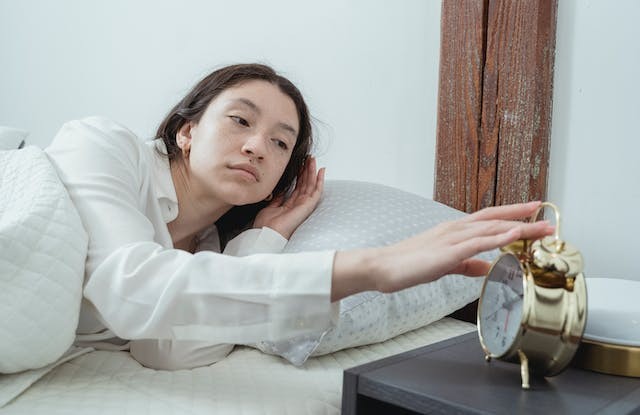
Wake Up Alarm Effective? What's the Most Helpful Sound To Keep You Into a Wakeful State?
The sound from your alarm clock could be an effective way to wake you up. However, it may also be why you feel groggy hours after getting out of bed.
Is Wake Up Alarm Effective?
Most of us use an alarm clock to help us get up on time so we don't miss classes, work, or other opportunities. However, while they work to help you awake, they may not be effective in keeping you awake and alert to face the entire day.
Sound-based alarm clocks work great for setting a particular wake-up time, but they cannot detect your exact sleep stage when they wake you up.
Because noise may wake you up regardless of your sleep stage, it is the preferred waking method employed by most alarm clocks. However, you'll probably feel strange if your alarm clock wakes you in deep or REM slumber.
If you wake up in the middle of your cycle, you'll undoubtedly feel sleepy and confused and want to go back to sleep. All of these sensations are indicative of a condition called sleep inertia.
This feeling of being half sleepy and half awake should go away in a few minutes if you're getting enough sleep, but it could take up to four hours.
When sleep inertia takes hold of you, you'll probably experience a decline in both your physical and mental abilities. Thus, you might encounter the following:
- having trouble making decisions
- gloomy or depressed
- feeling uncertain and disoriented
- weakening of the muscles
If the symptoms go away after a short while, that's all well and good, but if they persist for several hours, it can ruin your day and prevent you from being productive.
The symptoms of sleep inertia can sometimes be mistaken for those of having been up the night before. They can even make you feel sleep-deprived after you've fallen asleep!
ALSO READ: Time-Monitoring Behavior While Trying To Sleep Could Worsen Insomnia [Study]
What's The Best Sound To Keep You Awake Without Sleep Inertia?
According to Dr. James Giordano, a professor of neurology and biochemistry at Georgetown University Medical Center, it is much more challenging to wake up from a deeper sleep feeling focused and prepared to face the day. However, some preliminary cues may be more effective at promoting alertness regardless of sleep stages.
That can begin with the first sound you hear. The most effective sound, according to Giordana, is one that gradually increases in volume and energy from a relatively quiet and peaceful beginning.
"Rather than just literally pulling them from sleep into the wakeful state, you're sort of gently escorting them into the wakeful state," Giordano explained.
He likens this to plunging into a freezing pool instead of gradually acclimating your body, inch by inch. Our bodies are not, in the same way that we adapt to changing temperatures or different activities or times of the day.
According to an Australian study, the best music to fight sleep inertia is one you can hum or sing along to. The researchers discovered advantages to waking up to music you enjoy, even though some people might avoid this pattern since it spoils the song for them and becomes infuriatingly repetitive.
RELATED ARTICLE: How Do 7 to 9 Hours of Sleep Help Improve Mental Health?
Check out more news and information on Sleep in Science Times.














